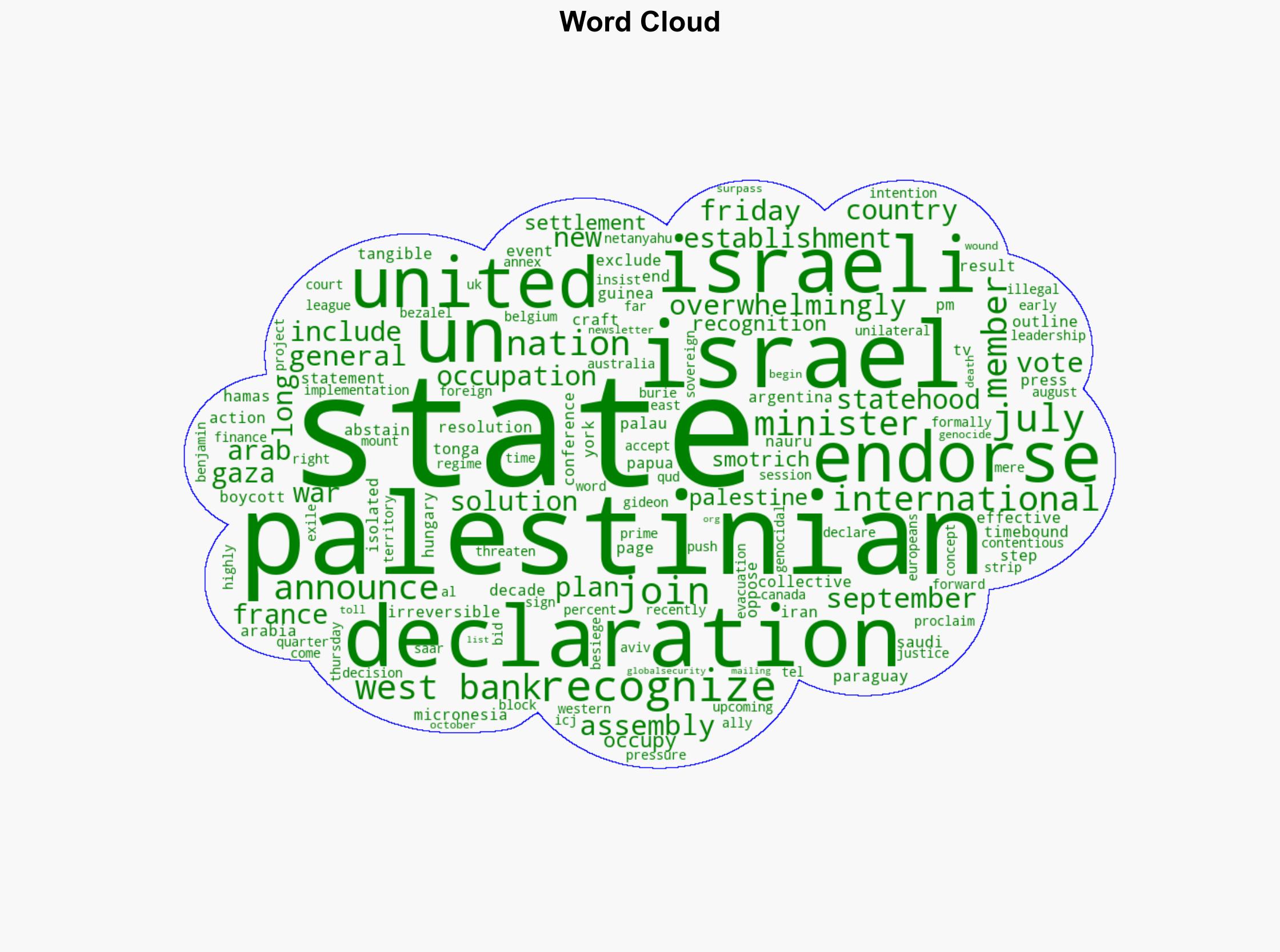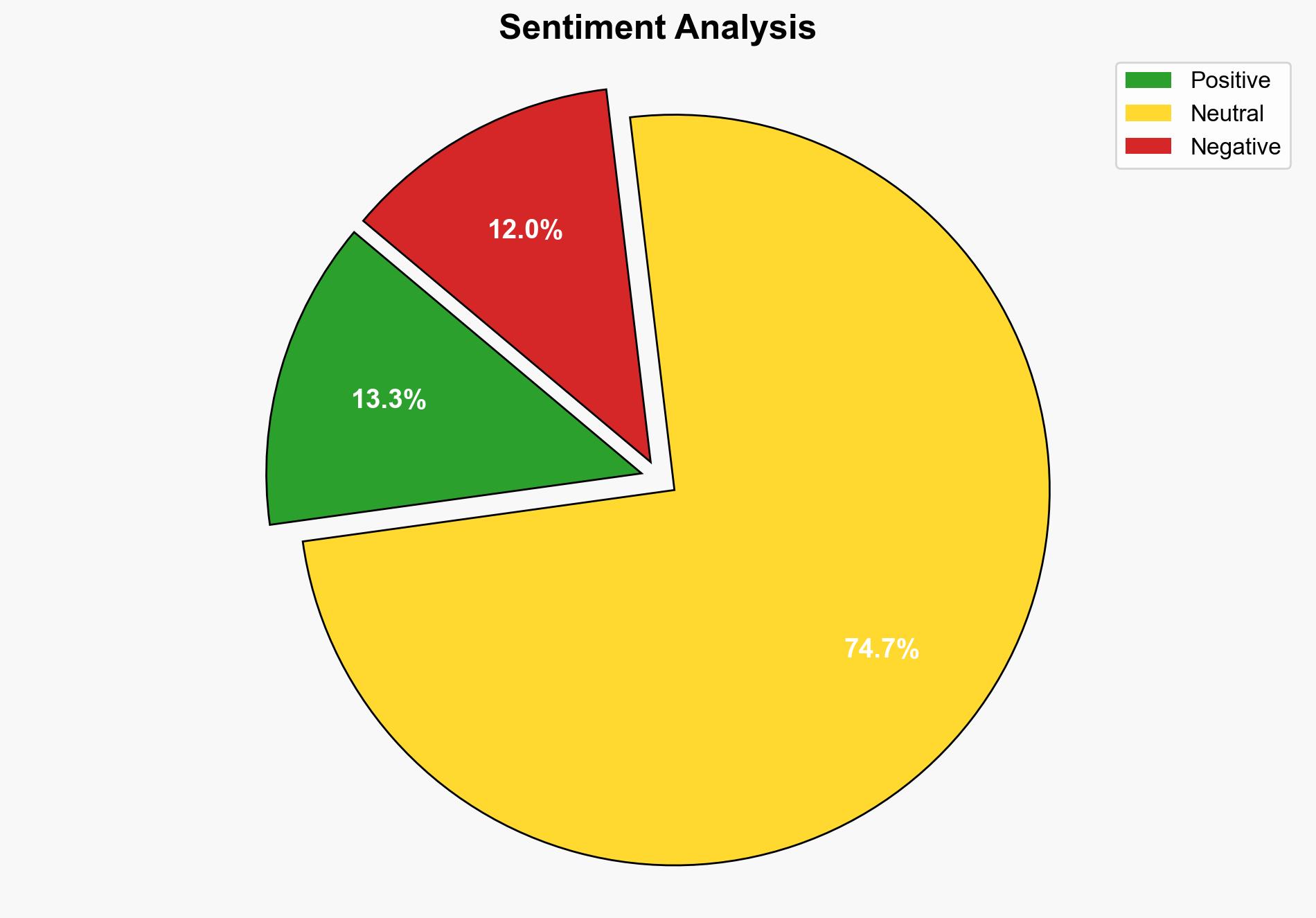UN overwhelmingly endorses declaration on Palestinian state – Globalsecurity.org
Published on: 2025-09-13
Intelligence Report: UN overwhelmingly endorses declaration on Palestinian state – Globalsecurity.org
1. BLUF (Bottom Line Up Front)
The UN’s endorsement of the Palestinian state declaration signifies a significant shift in international sentiment, potentially isolating Israel diplomatically. The most supported hypothesis is that this move will increase international pressure on Israel to negotiate a two-state solution. Confidence level: Moderate. Recommended action: Monitor diplomatic developments and prepare for potential shifts in regional alliances.
2. Competing Hypotheses
Hypothesis 1: The UN endorsement will lead to increased diplomatic pressure on Israel, pushing it towards negotiations for a two-state solution. This hypothesis is supported by the broad international support for the declaration and the isolation of Israel and the United States in the vote.
Hypothesis 2: The endorsement will have limited impact on the ground, as Israel and its allies will continue to resist international pressure, maintaining the status quo. This is supported by Israel’s historical resistance to similar resolutions and the lack of enforcement mechanisms in the declaration.
3. Key Assumptions and Red Flags
Assumptions:
– The international community will maintain pressure on Israel following the declaration.
– Israel’s geopolitical alliances will not significantly counterbalance the diplomatic isolation.
Red Flags:
– Israel’s potential unilateral actions, such as annexation plans, could escalate tensions.
– The absence of enforcement mechanisms in the declaration could undermine its effectiveness.
4. Implications and Strategic Risks
The endorsement could lead to increased diplomatic isolation for Israel, potentially affecting its economic and military partnerships. There is a risk of escalation if Israel proceeds with annexation plans or if regional actors perceive the declaration as a threat to their interests. Cybersecurity threats may also increase as actors exploit the geopolitical tensions.
5. Recommendations and Outlook
- Engage in diplomatic dialogues with key UN member states to assess their future actions and intentions.
- Prepare contingency plans for potential regional escalations, including cyber threats.
- Scenario Projections:
- Best Case: Israel engages in negotiations, leading to a peaceful resolution.
- Worst Case: Regional conflict escalates due to unilateral actions by Israel.
- Most Likely: Continued diplomatic stalemate with periodic escalations.
6. Key Individuals and Entities
– Benjamin Netanyahu
– Gideon Saar
– Bezalel Smotrich
7. Thematic Tags
national security threats, geopolitical tensions, diplomatic isolation, regional stability




